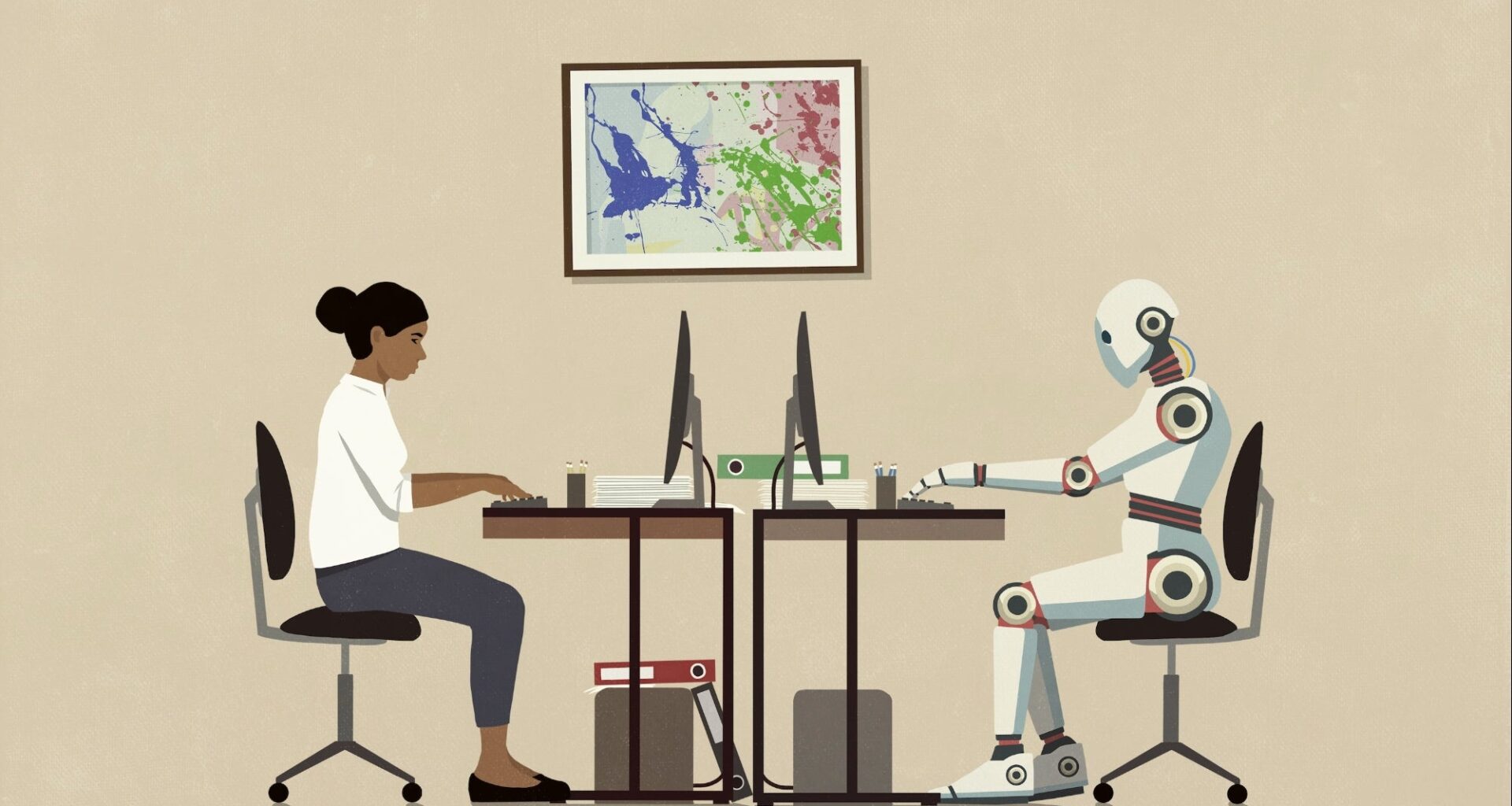Generative AI is poised to transform the way people work, but some occupations will be far less affected than others, according to a new analysis from job listing platform Indeed.
Indeed released a new study on Tuesday that examined 2,900 job skills in the company’s database and assessed how well AI could perform each skill. The report found that, on average, AI can currently perform nearly half of the skills (46%) required in a typical job posting — and it’s only getting “smarter.”
AI could “profoundly reshape almost half the skills needed by a typical worker,” wrote the study’s authors, Indeed Hiring Lab Senior Economist Annina Hering, and Arcenis Rojas, a data scientist.
Related: The CEO of a $183 Billion AI Startup Says There’s a ‘Need to Warn the World’ About AI Taking Jobs
The study suggests that all jobs will be impacted by AI, eventually, but technical and information-dependent roles will experience the effects first. Roles that require a physical presence will have a lower risk of automation — for now. The skills that could be most changed by AI included software development, data and analytics, and accounting. The report found that AI can replicate the problem-solving ability required for each of these jobs.
The roles least likely to be replaced by AI were found to be the childcare, nursing, and construction fields. These jobs require physical execution, which suggests that until robotics advances, humans will continue to perform this kind of work.
When Indeed initially ran a version of this study a year ago, there were zero skills listed as “very likely” to be replaced by AI. The new report finds that 19 skills could be fully taken over by the technology, including basic math and image classification. The study’s authors say AI will continue to gather steam and gain greater potential to automate skills in the years ahead.
“GenAI has gotten (and continues to get) smarter,” Hering and Rojas wrote in the study. “As long as physical execution is not required — an admittedly big caveat — and GenAI capabilities continue to grow, more skills are likely to cross the threshold into realistic automation as work continues to evolve.”
In IT and software programming, for example, AI is taking over routine, repeatable coding tasks. The new capabilities enable programmers to shift from “doing the work” to “directing the work.” In other words, instead of writing code, programmers can edit AI outputs and ensure that the quality of the code is up to par.
Dario Amodei, the CEO of $183 billion startup Anthropic, predicted in March that AI would take over writing all code for software developers within a year. Tech giants like Google and Microsoft have touted that their companies are using AI to generate about 30% of new code.
Indeed researchers wrote that the shift to AI taking over tasks “helps to raise the bar, not lower it,” because workers need to be able to outperform AI in reasoning and skill in order to oversee it.
Related: Here Are the 10 Jobs AI Is Most Likely to Automate, According to a Microsoft Study
Other studies have identified additional professions at risk of being automated as AI advances.
A Pew Research survey from earlier this year, which surveyed over 5,400 U.S. adults and 1,000 AI experts, found that three professions are most at risk of vanishing in the next two decades because of AI: cashiers, journalists, and factory workers.
Meanwhile, a broader 2023 report from McKinsey estimated that AI could lead to the automation of 375 million full-time jobs by 2030.
Generative AI is poised to transform the way people work, but some occupations will be far less affected than others, according to a new analysis from job listing platform Indeed.
Indeed released a new study on Tuesday that examined 2,900 job skills in the company’s database and assessed how well AI could perform each skill. The report found that, on average, AI can currently perform nearly half of the skills (46%) required in a typical job posting — and it’s only getting “smarter.”
AI could “profoundly reshape almost half the skills needed by a typical worker,” wrote the study’s authors, Indeed Hiring Lab Senior Economist Annina Hering, and Arcenis Rojas, a data scientist.
The rest of this article is locked.
Join Entrepreneur+ today for access.
